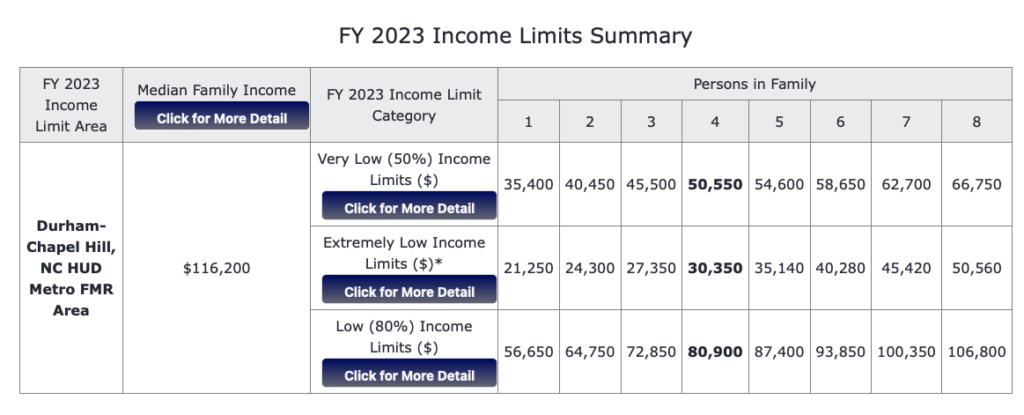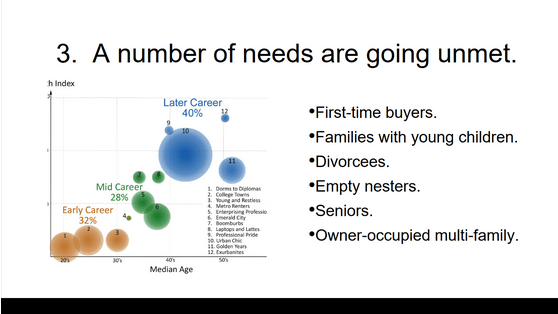Earlier this week, the U.S. Department of Housing and Urban Development (HUD) released its 2023 numbers for the Median Family Income for the Durham-Chapel Hill metro area. In 2022, the median family income was $95,500, which means that the typical family in our area made just under six figures.
But as of Monday, the median family income is now $116,200, a twenty-two percent increase in just one year. If you’ve ever heard someone wonder how people are able to afford the high cost of housing in our area, the dramatic increase in incomes tells part of the story. (HUD also calculates the rise in rents, which it estimated rose 10 percent over the past year).
The median family income is more than just a statistic. It is one of the key tools used in determining the income levels for subsidized affordable housing in our community. Here are HUD’s numbers for this year:

Whenever the town negotiates with developers to provide affordable housing (not the ideal strategy), they use these income limits to determine what counts as affordable. For example, when the town recently approved Grubb Properties’ proposal to build an apartment building downtown, they did so with the stipulation that Grubb rent five of the 150 units in its apartment building to people making 80 percent of AMI (Area Median Income, which is used interchangeably with MFI, or median family income).
Under the new numbers, this means that a single person renting a 1-bedroom apartment will need to make less than $56,650 to qualify for the subsidized apartment, which will be priced below the market rate. (Under these guidelines, an apartment can charge no more then 30 percent of one’s income in rent, which means that a single person making $56,650 would pay $1416.25 a month.)
Fortunately for renters and home buyers, the rise in the incomes that qualify one for affordable housing is capped at five percent a year. But, the increases in incomes, materials, land, and other factors impact the people who build housing, whether it’s local governments, nonprofits, or for-profit companies, which will make it even harder to produce sufficient affordable housing in the future.
This is why it is important to do all the things when it comes to housing, and not just rely on a single strategy.

